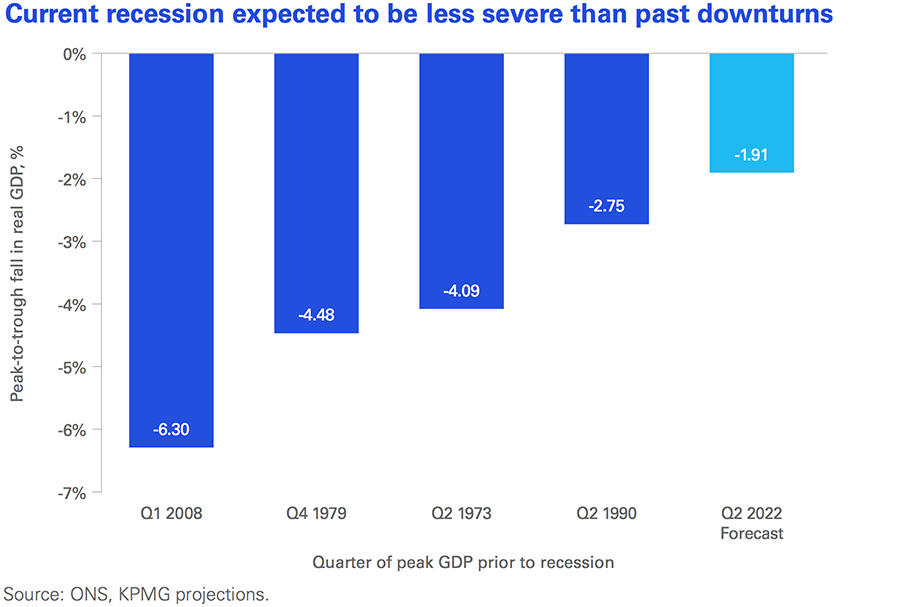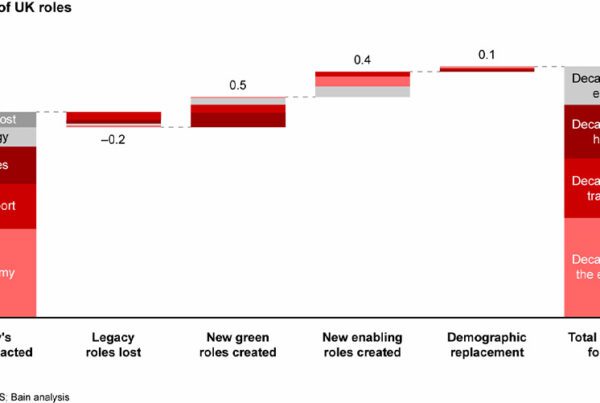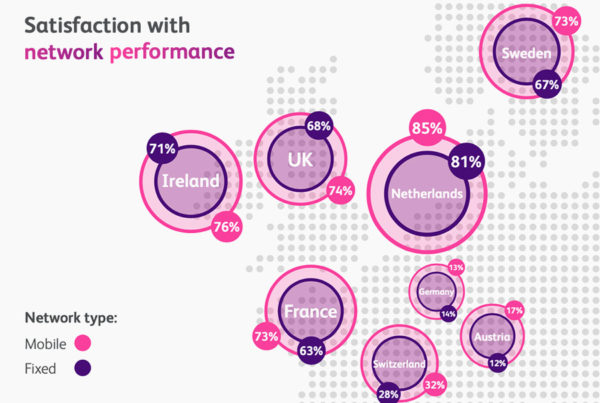The global economy spent the duration of 2022 teetering on the brink of recession – and the UK looks to have finally fallen into one. According to a new study, it may be a milder event than previous downturns – however, the UK could have done more to negate it, with the chief cause of this recession being the collapse of consumer spending power throughout the last year.
The world is anxiously poised, waiting for confirmation that their own economies are tipping into recession in 2023. But the UK may actually have been in the midst of one for some time. With the British economy shrinking by 0.3% between July and September, the Bank of England already labelled this as the start of a “prolonged period” of negative growth, lasting throughout 2023.
The causes of the current downturn are very different to previous recessions. On the one hand, this means that the recession looks set to be milder than previous economic crises – however, it also means that the government’s current course of action will likely see the UK exit recession long after European nations.

According to a report from KPMG, at its worst moment the downturn of 2008 saw -6.30% of GDP wiped out in a single quarter, compared to a projected -1.91% fall for the second quarter of 2023. Overall, KPMG believes the UK economy will shrink by 1.3% over the whole of 2023, amid a relatively shallow but protracted recession.
However, while they may avoid a deep recession, UK leaders are also doing little to help the economy rebound quickly. 2024 will only see a partial recovery, in which KPMG expects GDP may only rise by 0.2%. This may be because the UK government’s response to this crisis seems to be more of the same, an extension of the austerity measures that were brought in following the Great Recession. One problem with cutting public spending on services consumers rely upon, is that it ends up putting more pressure on households already having to scale back their spending to make ends meet in the current climate.
As noted in KPMG’s study, though, the chief cause of the UK’s current recession is a fall in consumer confidence. With double-digit inflation feeding through into higher prices for food and housing and demands for higher wages – and borrowing rates also rising – consumers are unable to spend at normal rates. And even if inflation eases slightly, if nothing is done to restore consumers’ confidence in their ability to spend on ‘non-essentials’, they will be unlikely to free up funds for some time.

KPMG found that by the end of the third quarter of 2022, household consumption had already fallen by 0.6% on a per capita basis, and this is projected to fall by a further 3.4% by mid-2024. While a fall in savings or higher borrowing could support consumption to some degree, persistently low levels of consumer confidence could lead to higher levels of precautionary savings – and this will do nothing to speed the recovery.
Yael Selfin, Chief Economist at KPMG UK, commented on the report, “The increase in energy and food prices during 2022, as well as higher overall inflation, have significantly reduced households’ purchasing power. Rising interest rates have added another headwind to growth… Households are expected to rein in spending on discretionary items in 2023 in response to the squeeze on income. As consumers cut back on spending, we anticipate a sharp reduction in non-essential categories of spend by those households most affected by the rise in energy and food costs, including spending on eating out and entertainment.”
What could be done by the government to boost consumer confidence is up for debate. When it comes to helping citizens struggling to keep their heads above water, the Treasury maintains there is ‘no magic money tree’, however, it is clear that the state can find a bottomless money pit for its own needs. After trashing plans to cap energy charges for UK households, the government also announced British defence spending was set to rise by more than £1 billion.




